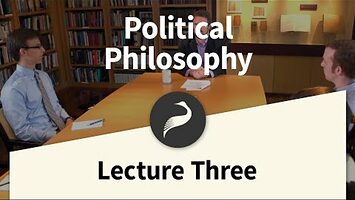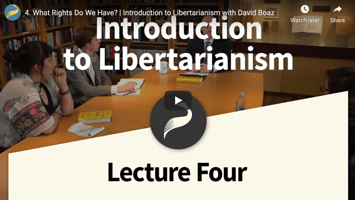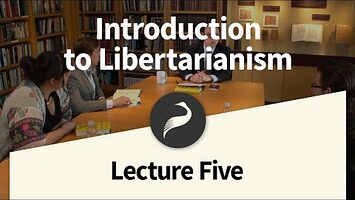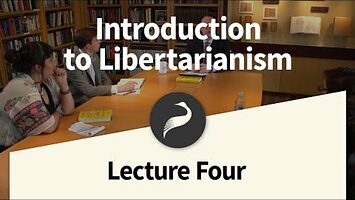Individual Rights
Encyclopedia
Individual rights provide moral protection for individuals against unchosen and characteristically harmful incursions carried out by other individuals or groups. Rights are normative signposts that tell us that such incursions are morally impermissible, that groups or individuals that engage in such incursions act wrongfully, and that such wrongful incursions may rightfully be suppressed. Individual rights are often described as moral fences or boundaries. An individual’s rights specify the domain over which he rightfully exercises control; if others intrude on that domain, they trespass on him. As John Locke put it in Two Treatises of Government, rights allow individuals “to order their actions, and dispose of their possessions and persons, as they think fit … without asking leave, or depending upon the will of any other man.” Morally speaking, individual rights divide the world—including, most fundamentally, the world of persons—into “mine and thine.” Indeed, libertarian doctrines of individual rights are often cast in terms of a fundamental right of self-ownership. However, libertarian theories of individual rights also affirm individual rights to extrapersonal objects (e.g., to acorns, tractors, and software). Individual property rights radically expand the domains in which individuals may act as they see fit; without rights to extrapersonal objects, the outer boundaries of those domains would be the outer surfaces of our bodies. Individual rights—including property rights—protect persons in the private pursuit of their own preferred ends. They protect each individual’s freedom to pursue his own conception of the good against all individuals and groups that might propose to subordinate the individual or his resources to another’s purpose.
Although some libertarian thinkers eschew the vocabulary of rights, doctrines of individual rights have been fundamental in most libertarian theorizing. Most of the great figures in the history of political philosophy to whom libertarians appeal—such as John Locke, Immanuel Kant, and Herbert Spencer—placed doctrines of individual rights at the core of their political philosophies. Similarly, most of the recent theorists to whom libertarians appeal—such as Ayn Rand, Murray Rothbard, and Robert Nozick—have grounded their libertarian conclusions in robust affirmations of individual rights. That common appeal to individual rights is not surprising, because affirmation of individual rights manifests the core individualism of libertarianism and of the philosophical traditions on which libertarianism draws.
Indeed, among libertarian advocates of individual rights and among their philosophical predecessors, the ascription of protective individual rights reflects a deeper belief in the separate importance of each individual’s person, life, happiness, or life projects. Advocates of significant protective rights do not think of persons and their lives (or their happiness or life projects) as important merely as a means to some collective end (e.g., the collective end of social happiness or social equality). Rather, those advocates think of each person and his life (or his happiness or life projects) as something that has its own independent importance. Advocates of individual rights take seriously the separate importance of persons (or their individual lives, happiness, or projects) by asserting the existence of moral fences that protect each person against incursions that treat the individual as a mere means to others’ ends. It must be emphasized, however, that advocates of individual rights are divided among themselves about precisely which features of human existence give rise to persons’ possession of rights. They also are divided about precisely how claims about the rights of individuals are grounded in the features of human existence that give rise to each person’s possession of rights. Rather than pursue these philosophical controversies, we turn to a more precise delineation of individual rights and the role of individual rights within libertarian theory.
If an individual possesses some right against another moral agent, the second person is morally required to constrain his action toward the first in certain ways. For instance, if we possess a right to life, then others are morally required not to threaten or destroy it. On most accounts of rights, because we may demand that others act in accordance with our right, we may enforce our rights against others or we may authorize some third party to enforce those rights. Thus, part of what is distinctive about this dimension of morality is that it is legitimately enforceable. Rights are the heavy artillery of moral discourse. If I have a right to someone else’s acting in a certain way, it is not merely praiseworthy that that person act in that way; morally speaking, he must act and may be made to act in accordance with my rights.
The fact that rights are morally demanding also may be appreciated by noting that, in general, rights and obligations are correlative. That means that, in general, if I have some right against you, then you have a corresponding obligation to me. If I have a right against you that you not take my life, then you have an obligation toward me not to take my life. Your forbearing to take my life is not merely praiseworthy; it is obligatory and properly subject to being enforced. However, to say that rights and the obligations correlative to those rights constitute the enforceable dimension of morality is hardly to say that that is the only dimension of morality. Indeed, a great part of the point and value of a regime of enforced individual rights is that it frees people to act on their broader moral understanding of what is good and virtuous and what is bad and vicious.
Because rights mark off those moral claims of individuals for which respect may be enforced, and because political and legal institutions are instruments of enforcement, rights provide guidelines for legitimacy in political and legal institutions. The use or threat of force by political and legal institutions will be morally acceptable—and those institutions will be legitimate—only insofar as force or the threat of force is used to secure respect for the rights of individuals. Insofar as political and legal institutions use force or the threat of force for ends other than securing the rights of individuals, they act wrongfully and lack legitimacy.
Because rights are the heavy artillery of moral discourse, rational fear of bombardment counsels us to be highly selective in which assertions of rights we accept. A too-ready acceptance of alleged rights leads to an oppressive list of enforceable obligations. As the list of others’ rights grows, each of us is subject to a growing burden made up of the obligations correlative to those rights; correspondingly, the ability of rights to be protective of individual choice dissolves. Moreover, as the list of rights grows, so too does the legitimate role of political and legal institutions, and the libertarian case for radically limiting the scope and power of such institutions withers away. Libertarian theories of rights avoid generating an oppressive list of obligations through the employment of two crucial distinctions—the distinction between negative and positive rights and the distinction between general and special rights.
If an individual possesses a negative right against others, then others are merely required not to act in a certain way with respect to the rights holder. In contrast, if an individual possesses a positive right against others, then they are required to perform some action with respect to the rights holder. For instance, my right to life construed as a negative right is tantamount to a right not to have my life destroyed or threatened. All that an individual’s negative rights can require of other people is that they leave that individual alone—that they leave him to the peaceful enjoyment of what is legitimately his. In contrast, my right to life construed as a positive right entails that I have a right to be provided with life (i.e., to be provided with the necessities of life). If I have positive rights against another, then his merely leaving me alone violates my rights.
General rights are rights that every individual has against every other individual. Those rights have often been referred to as natural rights or human rights because individuals possess them on the basis of some common natural feature of human existence (e.g., on the basis of the ultimate separate importance of each person and each person’s life). The right of self-ownership and the right not to have one’s life taken are examples of general rights. In contrast, special rights are rights that specific individuals possess on the basis of particular actions performed by other individuals—individuals who, through their particular actions, have incurred special rights-correlative obligations. For example, I may possess a right against another that he deliver a copy of this encyclopedia to me, and I may possess that right on the basis of his having contracted to deliver this tome. This right is specific—conferred on me alone and not on anyone else. Contract is only the most obvious type of action by which one person may confer a special right on another. A person also might, for instance, have conferred a right on me to be provided with a copy of the encyclopedia by way of the other person having destroyed my previously purchased copy.
Libertarian theorists hold that all general rights are negative rights. For all persons, the initial baseline rights and obligations are negative. We are, so to speak, each born free—morally free to do with our lives as we see fit, subject to the negative constraint that we leave others equally free to do with their lives as they see fit. That is to say that all individuals are born to full self-ownership, to self-sovereignty; no individual is born to servitude to others. Although each person is born to a negative obligation to leave others in the peaceful enjoyment of their persons and their own property, that baseline obligation is not oppressive. For fulfilling that general negative obligation leaves one entirely free to dispose of oneself and one’s own property as one sees fit. Moreover, for each person, all others being subject to that negative constraint is essential to his own moral freedom, to his own right to do as he sees fit. Rights to a particular property (aside from property in one’s own body) are obviously not general rights; no one is born to any particular rights to extrapersonal objects. Still, property rights—like general rights—are negative rights. In the absence of special complications, one’s property rights only impose on others the duty not to trespass and to leave one free to do as one sees fit with oneself and one’s own property. Moreover, for each person, the fact that others are bound to respect one’s property rights is essential to one’s own freedom to do as he sees fit with his person and property. Negative rights are nonoppressive.
In libertarian theories of individual rights, all positive rights are special rights. An individual can acquire positive rights against another—rights to another serving me in one way or another—only if that right is conferred on me by the other person. All of a person’s positive obligations must arise from actions performed by that person, such as his entering into an agreement to provide another with a copy of the encyclopedia. That is the sense in which, on the basis of a libertarian theory of rights, there are no unchosen positive obligations. All positive obligations are chosen, most characteristically through the agreements into which individuals voluntarily enter. The world of interpersonal relations is indeed thick with a great variety of positive rights and obligations, but those special rights and obligations are the products of particular decisions made by the individuals who are bound by those obligations. They are not obligations to which individuals are born, nor are they obligations that are imposed by others’ needs, desires, or decrees. Libertarian theories reject assertions of positive rights that cannot be traced to the specific obligation-incurring actions of the individuals who are subject to those rights. Thus, individuals control the positive obligations to which they are subject, and, accordingly, the list of recognized obligations remains nonoppressive.
All general rights (and property rights) are negative rights. Yet this scenario is not a recipe for a world in which all or even most individuals retreat behind their right to be left alone. For the right to be left to the peaceful enjoyment of oneself and one’s own is the right to choose which socioeconomic relationships one will enter. Recognition and protection of everyone’s baseline negative rights induce the formation of relationships that individuals willingly enter on the basis of their perception of the value of those relationships. The recognition and protection of the positive rights and obligations that arise within those voluntary relationships sustain and advance the complex and mutually beneficial social order that emerges from respect for individual rights. It is that complex and advantageous social order, not merely the right to be left alone, that the doctrine of individual rights serves.
Further Readings
Kant, Immanuel. The Metaphysical Elements of Justice. J. Ladd, ed. Indianapolis, IN: Bobbs-Merrill, 1964.
Locke, John. Two Treatises of Government. P. Laslett, ed. Cambridge: Cambridge University Press, 1967.
Lomasky, Loren. Persons, Rights, and the Moral Community. Oxford: Oxford University Press, 1987.
Machan, T. R., ed. Individual Rights Reconsidered. Stanford, CA: Hoover Institution Press, 2001.
Mack, Eric. “In Defense of the Jurisdiction Theory of Rights.” Rights, Equality, and Liberty. G. Pincione and H. Spector, eds. Dordrecht: Kluwer Academic Publishers, 2000.
Nozick, Robert. Anarchy, State and Utopia. New York: Basic Books, 1974.
Rand, Ayn. The Virtue of Selfishness. New York: Signet Books, 1964.
Spencer, Herbert. Social Statics. New York: Robert Schalkenbach Foundation, 1970.
Steiner, Hillel. An Essay on Rights. Oxford: Blackwell, 1994.
Tuck, Richard. Natural Rights Theories. Cambridge: Cambridge University Press, 1979.

























